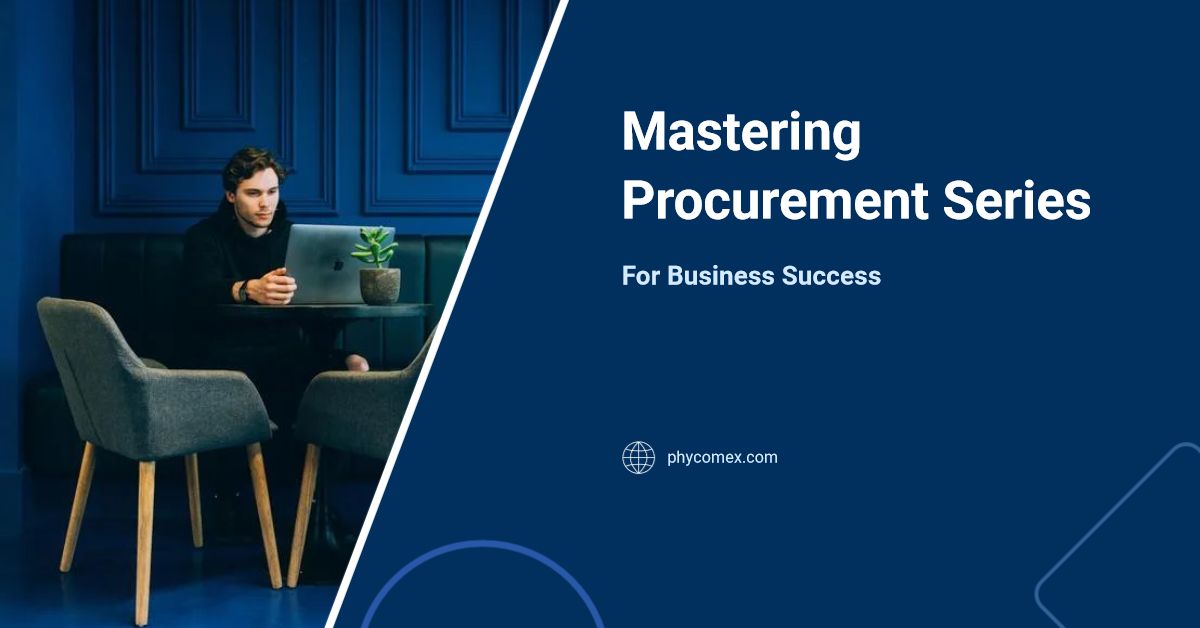Procurement is an integral part of any successful business. It is a complex process that involves careful planning, supplier identification and evaluation, and negotiation for the most cost-efficient acquisition of goods and services.
This article will explore the key elements of the procurement process and how mastering it can lead to business success. We will discuss the importance of sustainable procurement practices, recordkeeping and documentation, and leveraging advanced procurement software solutions.
Definition and Importance of Procurement
Frequently, procurement is defined as the process of managing procedures and processes to acquire materials for manufacturing finished goods. It is based on demand forecasts, budget constraints, and time limitations.
Procurement strategies must be implemented to address business requirements and stakeholders’ needs. Such strategies must also adhere to sustainable procurement practices.
Challenges may arise from inadequate budgeting, lack of resources, and insufficient knowledge. Advanced procurement software solutions and appropriate training can help address such challenges.
Companies must strive to improve their procurement processes to ensure business success.
Procurement Planning
Effectively planning procurement is essential for business success. To do so, organizations must assess procurement requirements at an enterprise level, evaluate demand projections, historical data and market trends, and define and develop a procurement strategy and sourcing plan. It must be approved by project head, end-user department head, and budget approving authority.
Market Analysis:
- Assess demand, budget constraints, and time limitations.
- Consider market trends, historical data, and risks.
Procurement Strategy:
- Create a procurement plan and sourcing strategy.
- Obtain procedural, budgetary, and managerial approvals.
Approval and Requisition
Approval and requisition are essential steps in the procurement process.
The approval process involves obtaining necessary approvals from the project head, end-user department head, and budget approving authority. This ensures that funds are allocated for the procurement activity, and that it is conducted in accordance with organizational policies.
The requisition must also be approved before proceeding with procurement. This helps ensure that the requirements are met, and that stakeholders’ needs are addressed.
Furthermore, budget allocation is based on the approved requisition, and it is essential for financial accountability and control.
Supplier Identification and Evaluation
Identifying and evaluating suppliers is a critical step in the procurement process. The supplier assessment process involves selecting suppliers based on criteria that fulfill the five rights objectives: right quality, right quantity, right time, right price, and right place.
Supplier selection criteria should include:
- Location:
- Regional availability
- Logistics capabilities
- Reputation:
- Customer reviews
- Ethical practices
Other factors to consider are the supplier’s registration with the organization, capability to fulfill orders, response time to rush orders, and sustainability quotient.
Supplier selection is crucial for successful procurement as it ensures that the products and services acquired are of the highest quality at the most competitive prices.
Request for Quotations (RFQ)
Issuing a Request for Quotations (RFQ) is an important step in the procurement process. The RFQ process helps organizations to compare offerings from different suppliers and select the best quote.
Organizations must include necessary information in the RFQ to provide suppliers with the details they need to provide accurate quotations. It is important to follow best practices when issuing an RFQ. This includes evaluating the suppliers’ capabilities and assessing their response time to rush orders.
Organizations must also consider ethical practices and sustainability quotient while selecting suppliers.
Following the RFQ best practices helps organizations make informed decisions and ensure successful procurement.






0 Comments